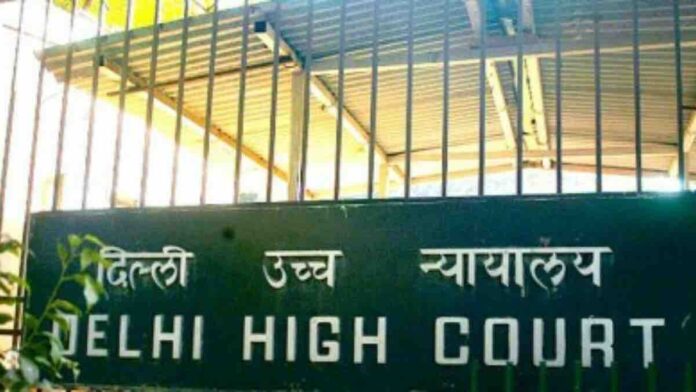The Delhi High Court on Tuesday asked ‘United Against Hate’ founder Khalid Saifi, in custody in a UAPA case related to the alleged conspiracy behind the 2020 North-East Delhi riots, to respond to city police’s claim that he was found with a mobile phone in jail.
Special public prosecutor Amit Prasad told a bench headed by Justice Siddharth Mridul that an application has been filed in Saifi’s pending bail plea in the matter to bring on record facts pertaining to his “conduct”.
Senior advocate Rebecca John, appearing for Saifi, said the mobile phone was seized from the barrack where the accused is lodged along with others, and the device does not belong to him.
She said a response has also been sent to the jail authorities on the issue.
She contended the application was filed to “prejudice the rights of the accused” in light of the Supreme Court’s recent order upholding the high court verdict granting bail to co-accused Devangana Kalita and others in the same case.
“This is how they (jail authorities) are trying to fix me. It is not my phone. This (incident) is from August 2022,” she said.
“Issue notice. Let reply be filed in a week. List after 10 days,” said the bench, also comprising Justice Rajnish Bhatnagar, which had reserved its verdict on Saifi’s bail plea in January.
Prosecutor Prasad also said the accused recently sought interim release from the trial court to attend the last rites of his deceased uncle. However, upon verification, the information pertaining to the dates of the ceremonies was found to be false.
John said there was a “communication gap” and and the application was withdrawn subsequently.
The senior lawyer also informed the bench that the top court has clarified the accused can seek bail in the present case on the ground of parity with co-accused Kalita and others.
The court, meanwhile, adjourned the hearing till May 18 on the bail plea by student activist Sharjeel Imam in the matter.
Sharjeel Imam, Khalid Saifi and several others, including Umar Khalid, have been booked under the anti-terror law Unlawful Activities (Prevention) Act (UAPA) and provisions of the Indian Penal Code for allegedly being the “masterminds” of the February 2020 riots in North-East Delhi which left 53 people dead and over 700 injured.
The violence had erupted during the protests against the Citizenship Amendment Act (CAA) and National Register of Citizens (NRC).
Senior lawyer for Saifi had earlier asserted the case against him was not based on evidence but “frightening and alarming phrases” by the police. His counsel had asserted that Saifi cannot be kept in indefinite incarceration.
Also Read
She has said the whole FIR was set up on the “opinion of two-three men sitting in the special cell office”. She has asserted that Saifi has not committed any violence but he was a “victim of custodial violence”.
Delhi Police has opposed Saifi’s bail plea, saying its case against him was “not a figment of imagination” and it was clear from the WhatsApp messages exchanged between the accused persons that the protests against CAA and NRC had to be followed by chakka jam and violence.
Police has refuted Saifi’s claim that he had no connection with co-accused Umar Khalid and Sharjeel Imam, saying the same was not borne from the material on record and his discharge in another riots case “does not take us to a logical end to say that there was no evidence”.
On October 18, 2022, the court had refused to grant bail to Umar Khalid in the same case, saying he was in constant touch with other co-accused and allegations against him were prima facie true.




